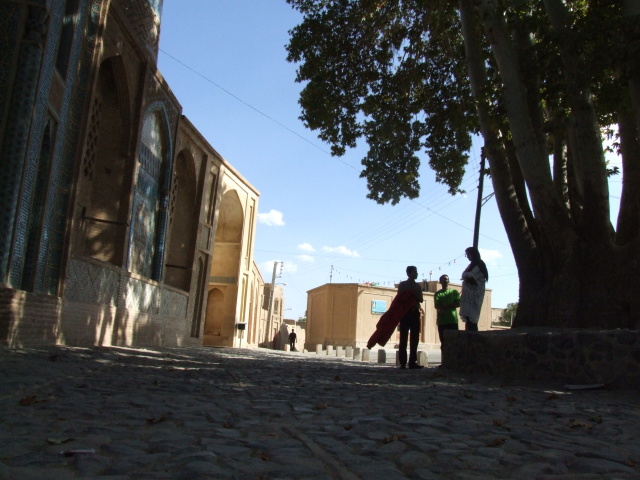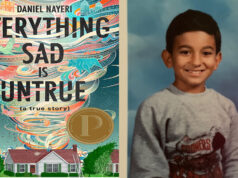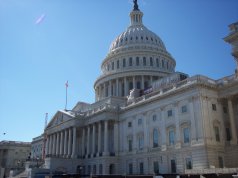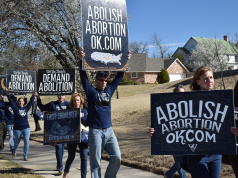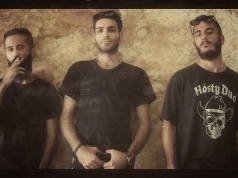While Americans are still preoccupied with their own political season, history is perhaps writing itself in the Middle East, as “moderate” reformist voices make gains in Iranian elections.
Despite declaring more than half of 12,000 candidates ineligible for Friday’s elections in Iran, ruling hardliners appear to have lost the battle of public opinion to reformist and independent candidates aligned with President Hassan Rouhani.
While he has his skeptics in the international community, Rouhani was elected to office in 2013 on a platform of economic reform that included plans to reach a nuclear deal, lift sanctions and improve relations with the United States and the international community. Having made major progress, Rouhani hoped that his party could use his current popularity to make big gains in parliament Friday and continue with planned reforms.
The results speak for themselves. Rouhani and his allies made significant gains, winning all 30 seats in Tehran and picking up additional seats in other city centers. Official totals show reformists carrying between 70 and 80 seats in the 290-seat parliament — a small but powerful minority. Independent candidates, many of whom are aligned with Rouhani on economic and other issues, won more than 100 seats. The hardliners still have numbers, but they have dwindled significantly.
More importantly, moderate candidates drew the most votes in the Assembly of Experts, the 88-member clerical body responsible for overseeing and selecting the supreme leader. Additionally, two top hardline members, ayatollahs Mohammad Yazdi and Mohammad Taghi Mesbah-Yazdi, lost their seats on the assembly as moderate candidates ascended to the top spots.
While the assembly is not typically a major factor in daily political life, Supreme Leader Ali Khamenei’s health is reportedly waning. New members, led primarily by those aligned with Rouhani, will likely choose the next supreme leader at some point during their eight-year terms.
Rouhani and his chief ally, former President Akbar Hashemi Rafsanjani, have praised voters and characterized the victory as a mandate for further change and a rebuke of hardline rule.
Rafsanjani, a former ally of Khamenei’s, hailed the victory and warned against hardline interference: “No one is able to resist against the will of the majority of the people and whoever the people don’t want has to step aside,” according to Reuters.
Likewise, Rouhani praised the power of the people: “The people showed their power once again and gave more credibility and strength to their elected government.”
Iranian-American perspective
The state of Oklahoma has an active and thriving Iranian-American community with a wide range of opinions about what the elections mean.
Farzad Khalili, a 39-year-old Iranian-American living in Norman, said that opinions vary greatly, from those who are excited to see reform and change to those who are nervous about what that change could mean for the country. Others still see the elections as little more than a sham to help the regime prop itself up.
Khalili, who was born in the United States but lived in Iran during his youth, is an active member of the Oklahoma City metro’s Iranian community and an avid follower of Iranian politics. He says reformist gains are a sign that the country is moving in the right direction.
“I think it’s a big victory for Rouhani and Rafsanjani, a very powerful person in Iranian politics and a leading figure in the revolution,” he said. He went on to say that it’s hard to predict what will happen, but change could come. “I think the election shows people are ready for change.”
Khalili also stressed that, in many ways, Iran is like many other nations, with modern technology and education, female participation in political life — a record number of female candidates won seats in parliament — and an interest in being a respected part of the international community. There are also many who have positive views of the United States.
Reasons for hope
While few consider Iran to be a true democracy — mostly because it still jails dissidents, censors the press and controls who can and cannot run for office — Iranian leaders have used elections as a way to give themselves legitimacy. If they hope to maintain that legitimacy and avoid a repeat of the 2009 pro-democracy Green Movement, the results of the current election will likely have to stand as the power struggle plays out. In the simplest terms, the people of Iran have chosen to part ways with hardliners like former President Mahmoud Ahmadinejad in favor of a more moderate approach. Khamenei, at least for the moment, appears to be conceding rather than pushing back and risking upheaval.
If things stand, the hope among international leaders is that this moment represents a sea change, a genuine departure from the saber-rattling and combative posture we have grown accustomed to seeing from Tehran. Internally, the hope is that a higher number of votes in parliament and greater amount of influence in the Assembly of Experts will help Rouhani enact additional economic reforms, lead the country out of a deep economic crisis, and usher in a more moderate supreme leader.
For the United States and President Barack Obama’s foreign policy legacy, the hope is that Rouhani’s political victory helps improve the ties they created during nuclear negotiations. While the potential for a U.S. friendship with a Shiite-majority country has proven troubling to our Sunni-dominated allies like Saudi Arabia, positive relations with Iran hold probably the greatest chance for regional stability. For decades, the United States has been waiting for the large volume of moderate Iranian citizens to realize a voice in government.
That time may have arrived.
Reason for doubt
Skeptics will tell you the nuclear deal is deeply flawed and that Iran is simply exchanging one hardliner for another: It’s just political theater in a very old power struggle between Khamenei and Rafsanjani. Conservative analysts in the U.S. have suggested Rafsanjani has merely leveraged public opinion to tip the scales in his favor and improve his chances selecting the next supreme leader. In essence, critics see it as an Iranian House of Cards more than a genuine change in leadership.
But some of those same critics also predicted the assembly would remain wholly hardline and conservative.
Perhaps the greater risk is that Rafsanjani and Rouhani simply fail to improve economic conditions, then suffer a backlash when Rouhani stands for re-election in 2017. If economic reforms fail to help the average voter, there’s a very real risk that the country could slide back toward hardline leadership.









